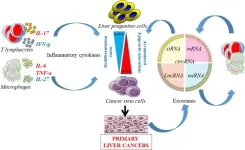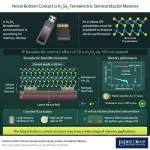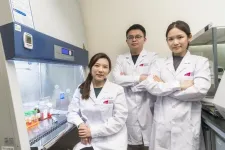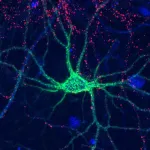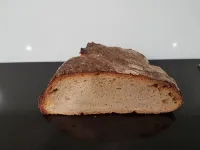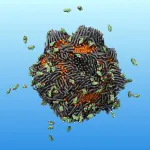(Press-News.org) Primary liver cancers ranked as the sixth most commonly diagnosed cancers and the third leading cause of cancer-related death in 2020. Among all primary liver cancers, HCC is the most common cancer, accounting for more than 80% of cases with a 5-year survival rate of less than 10% in Western countries. Despite significant progress in diagnosis and treatments, HCC, often diagnosed at late stages, remains a life-threatening disease with an increasing incidence. Therefore, a better understanding of the underlying mechanisms triggering the early steps of tumorigenesis represents a great interest to predict and propose more effective therapeutic options for liver cancer prevention.
A new review paper published under the leadership of Professor Fouad Lafdil has sought to develop a better understanding of the mechanisms that lead to the malignant transformation of cells, thereby potentially paving the way for the development of new therapeutic strategies.
Numerous studies have classified HCC according to gene expression profiling, immunohistological phenotypes and somatic mutation detection. These studies have revealed various patterns of HCC and next-generation sequencing analyses confirmed by high molecular heterogeneity within the same tumor nodule and various clonal evolution. However, clinical and histological studies revealed that 28 to 50% of HCC express progenitor/stem cell markers. In healthy livers, the progenitor compartment comprises resident liver progenitor cells (LPCs), which are bipotent intrahepatic quiescent cells. They are activated in chronic liver diseases in cases of massive tissue damage or prolonged chronic insult. It alters the proliferative capacities of remaining healthy hepatocytes. They participate in liver regeneration, fibrogenesis and tissue repair.
LPC accumulation, known as a ductular reaction, is frequently observed in diverse chronic liver diseases, such as preneoplastic cirrhotic livers with a worse prognosis. In addition, it is admitted that LPCs have the potential to initiate tumors because of their likelihood to transform into cancer stem cells (CSCs) that ultimately lead to the development of heterogeneous lineages of cancer cells. The underlying mechanisms leading LPC to become tumor-initiating cells is not yet fully understood, but recent studies reported some promising clues that deserve to be further considered.
Due to its enriched cell composition with a high density of immune cells. These include myeloid immune cells such as resident macrophages called Kupffer cells (KC), neutrophils, or lymphoid cells such as NK, NKT, T and B lymphocytes. As such, the liver is considered an immunological organ. During chronic liver diseases, the liver is frequently subjected to a continuous regenerative process occurring in a particularly active inflammatory context.
Increasing evidence suggests that LPC expansion occurs within a particular microenvironment requiring cellular interactions with non-parenchymal and immune cells. Chronic non-resolving inflammation and tissue damage contribute to the activation of LPC compartment and regulate several mechanisms. It leads to their transformation into cancer stem cells (CSC), including metabolic and epigenetic reprogramming pathways.
The researchers have summarized the latest findings that identified molecular inflammatory mechanisms that trigger the LPC growth, accumulation and their transformation into CSCs considered actively participating in the rise of primary liver cancers. These recent findings will open discussion and thought for novel therapeutic strategies to prevent liver cancer initiation.
Regarding therapy research aiming at preventing liver cancer occurrence, maintaining LPC compartment integrity by limiting their activation/transformation could be considered as an attractive therapeutic strategy. The exosome-mediated bidirectional communication between tumor cells and their microenvironment brings novel insight. More research is needed to decipher the underlying molecular mechanisms involved in the early steps of liver cancer development.
Primary liver cancers develop mainly in an inflammatory context, evidenced in virtually all chronic liver diseases. Despite significant advances in liver cancer diagnosis and therapies, the current anticancer treatments have remained poorly effective in the advanced stages of the disease over the past decade. Chronic non-resolving inflammation drives malignant initiation, tumor growth by increasing cancer stemness (self-renewal, EMT, chromosomal instability, immune escape), cancer metastasis and recurrence. The implication of LPC in carcinogenic processes may enlighten the plasticity of these cells with a high capacity to self-renew and their putative malignant features responsible for genetic heterogeneity observed in tumor development.
Dissecting and evaluating the contribution of stromal and immune cells allow an understanding of the intricated crosstalk between these cells localized in the CSC niche. This crosstalk controls the LPC transformation into CSCs and gives rise to HCC and CCA. In this inflammatory context, Th17 cells secreting IL-17 are crucial components among infiltrating immune cells that drive the transformation of LPC into CSC. Therefore, treatment aiming at neutralizing IL-17 production in combination with other therapeutic strategies may constitute a novel strategy for CSC eradication and could prevent liver cancer initiation from LPC origin.
About the eGastroenterology
eGastroenterology is a new, open-access, and open peer-reviewed BMJ Journal, which focuses on basic, clinical, translational, and evidence-based medicine research in all areas of gastroenterology (including hepatology, pancreatology, esophagology, and gastrointestinal surgery).
For more information, please visit: egastroenterology.bmj.com and follow us on Twitter (@eGastro_BMJ).
END
Scientists in NEXT Lab, Tsinghua University have revealed the fabrication and engineering techniques of TMDs and provided a comparative view between TMDs and traditional semiconductors, demonstrating the benefit of combining TMDs with traditional semiconductors.
The research, published in IJEM, shows how to fabricate layered semiconductors modulated with various methods, including phase engineering, defect engineering, doping, and alloying. Then the authors discuss various possibilities to combine layered semiconductors with traditional semiconductors.
Transition metal dichalcogenides (TMDs) with suitable ...
Traditional memory technologies face limitations in terms of speed, scalability, and power consumption, making them unsuitable for future data-intensive applications. Ferroelectric memory has garnered immense interest in recent years due to its potential for non-volatile storage, enabling data retention even when the power is turned off. The development of two-dimensional (2D) van der Waals material α-In2Se3 has also opened new opportunities for advancing memory technologies.
Interestingly, ferroelectric memory takes a giant step forward by incorporating the remarkable properties ...
SEATTLE, Wash. August 16, 2023–Distinguished global health leader Ibrahim Abubakar is the recipient of the 2023 Roux Prize for his dedication to improve health outcomes over the last three decades.
Now in its 10th year, the Roux Prize has been recognizing individuals all over the globe who have leveraged evidence-based health data to improve population health. The Roux Prize is awarded by the Institute for Health Metrics and Evaluation (IHME) at the University of Washington’s School of Medicine.
“Prof. Abubakar has been steadfast in his contributions to global health. His expertise and advocacy have directly affected policy implementation and ...
A research team co-led by City University of Hong Kong (CityU) and The University of Hong Kong (HKU) has recently made a significant advancement in spinal cord injury treatment by using genetically modified human neural stem cells (hNSCs). They found that specifically modulating a gene expression to a certain level in hNSCs can effectively promote the reconstruction of damaged neural circuits and restore locomotor functions, offering great potential for new therapeutic opportunities for patients with spinal cord injury.
Traumatic spinal cord injury ...
Commercially available mass spectrometers can reliably detect the SARS-CoV-2 coronavirus. In the journal "Clinical proteomics" researchers from the Martin Luther University Halle-Wittenberg (MLU) present a new method which employs equipment that is already being used in hospitals and laboratories to detect bacterial and fungal infections. It takes just two hours from swab to result. According to the team, the approach can also be easily adapted to detect other pathogens and could thus help in future ...
A ban on using apps to collect data in order to personalize advertising would significantly reduce the spectrum of available apps and the number of updates, according to a study by the Technical University of Munich (TUM) based on the ban concerning Android apps for children. The findings can assist companies in defining their business models and policymakers when regulating targeted advertising.
Most smartphone apps are free. The providers finance them with advertising, often with what is referred to as targeted advertising: The apps evaluate data such as usage behavior and the user's location and even photos and messages ...
SAN FRANCISCO, Aug. 16, 2023 — Can you recognize someone you haven’t seen in years, but forget what you had for breakfast yesterday? Our brains constantly rearrange their circuitry to remember familiar faces or learn new skills, but the molecular basis of this process isn’t well understood. Today, scientists report that sulfate groups on complex sugar molecules called glycosaminoglycans (GAGs) affect “plasticity” in the brains of mice. Determining how GAGs function could help us understand ...
SAN FRANCISCO, Aug. 16, 2023 — Indoor air pollution may have met its match. Today, scientists will report that they have designed catalyst-coated lampshades that transform indoor air pollutants into harmless compounds. The lampshades work with halogen and incandescent light bulbs, and the team is extending the technology so it will also be compatible with LEDs.
The researchers will present their results at the fall meeting of the American Chemical Society (ACS). ACS Fall 2023 is a hybrid meeting being held virtually and in-person ...
SAN FRANCISCO, Aug. 16, 2023 — A few years ago, amid lockdown boredom, it seemed like everyone was perfecting their sourdoughs. A simple, fermented mixture of flour and water, the bread is powered by microbes that provide its one-of-a-kind tangy flavor. For over a hundred years, sourdough bread has been synonymous with San Francisco, where today, scientists will report that they’ve identified and quantified 21 key chemical compounds that make this bread taste and smell so unique. They’ve also compared the levels of the compounds in different breads.
The researchers will present their results at the fall meeting of the American Chemical Society ...
SAN FRANCISCO, Aug. 16, 2023 — Pouring flecks of rust into water usually makes it dirtier. But researchers have developed special iron oxide nanoparticles they call “smart rust” that actually makes it cleaner. Smart rust can attract many substances, including oil, nano- and microplastics, as well as the herbicide glyphosate, depending on the particles’ coating. And because the nanoparticles are magnetic, they can easily be removed from water with a magnet along with the pollutants. Now, the team is reporting that they’ve ...
